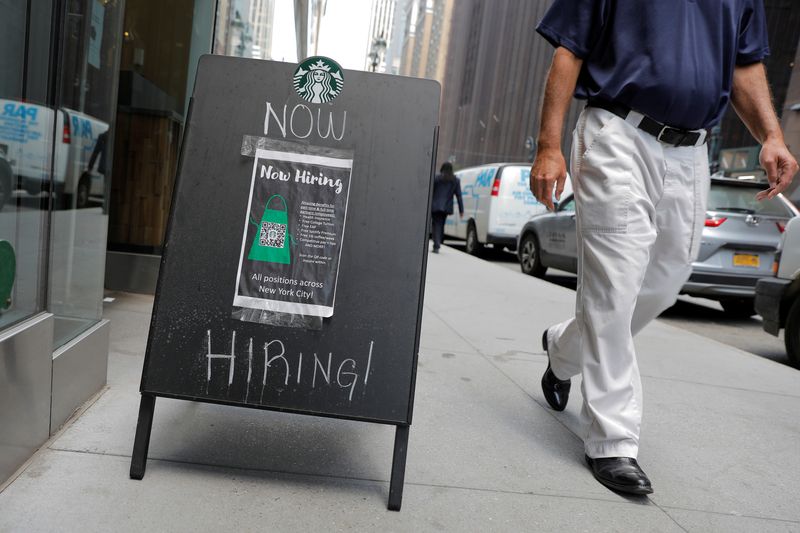WASHINGTON (Reuters) - The number of Americans filing new applications for unemployment benefits fell last week, suggesting the labor market continued to chug along and that the abrupt slowdown in job growth in October was an aberration.
Initial claims for state unemployment benefits dropped 4,000 to a seasonally adjusted 217,000 for the week ended Nov. 9, the Labor Department said on Thursday. Economists polled by Reuters had forecast 223,000 claims for the latest week.
Claims surged in early October amid distortions from Hurricanes Helene and Milton as a well as a strike by factory workers at Boeing (NYSE:BA), but layoffs have remained historically low, which is underpinning the economy.
"While many employment-related indicators point to a significant softening in labor market conditions this year, that change has not carried over to the unemployment insurance data thus far," said Lou Crandall, chief economist at Wrightson ICAP (LON:NXGN).
Though it might take some time for the areas devastated by Helene to recover, economists are optimistic that job growth will regain steam in November also as the Boeing strike ended, allowing the plane maker to scrap rolling furloughs it had implemented to conserve cash. Nonfarm payrolls increased by a mere 12,000 jobs in October, the fewest in nearly four years.
Easing labor market conditions are expected to encourage the Federal Reserve to deliver a third interest rate cut next month, even as progress lowering inflation has stalled. The U.S. central bank last week cut its benchmark overnight interest rate by 25 basis points to the 4.50%-4.75% range.

The Fed initiated its policy easing cycle with an unusually large half-percentage-point rate cut in September, the first reduction in borrowing costs since 2020. It hiked rates by 525 basis points in 2022 and 2023 to tame inflation.
The number of people receiving benefits after an initial week of aid, a proxy for hiring, decreased 11,000 to a seasonally adjusted 1.873 million during the week ending Nov. 2, the claims report showed. The decline in the so-called continuing claims likely reflected the end of Boeing-related furloughs and waning disruptions from the hurricanes.